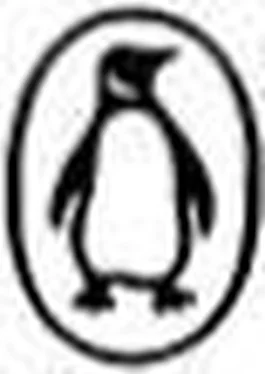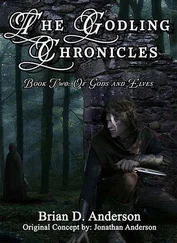Davidson, H. - Gods and Myths of Northern Europe
Здесь есть возможность читать онлайн «Davidson, H. - Gods and Myths of Northern Europe» весь текст электронной книги совершенно бесплатно (целиком полную версию без сокращений). В некоторых случаях можно слушать аудио, скачать через торрент в формате fb2 и присутствует краткое содержание. Жанр: Старинная литература, на английском языке. Описание произведения, (предисловие) а так же отзывы посетителей доступны на портале библиотеки ЛибКат.
- Название:Gods and Myths of Northern Europe
- Автор:
- Жанр:
- Год:неизвестен
- ISBN:нет данных
- Рейтинг книги:5 / 5. Голосов: 1
-
Избранное:Добавить в избранное
- Отзывы:
-
Ваша оценка:
- 100
- 1
- 2
- 3
- 4
- 5
Gods and Myths of Northern Europe: краткое содержание, описание и аннотация
Предлагаем к чтению аннотацию, описание, краткое содержание или предисловие (зависит от того, что написал сам автор книги «Gods and Myths of Northern Europe»). Если вы не нашли необходимую информацию о книге — напишите в комментариях, мы постараемся отыскать её.
Gods and Myths of Northern Europe — читать онлайн бесплатно полную книгу (весь текст) целиком
Ниже представлен текст книги, разбитый по страницам. Система сохранения места последней прочитанной страницы, позволяет с удобством читать онлайн бесплатно книгу «Gods and Myths of Northern Europe», без необходимости каждый раз заново искать на чём Вы остановились. Поставьте закладку, и сможете в любой момент перейти на страницу, на которой закончили чтение.
Интервал:
Закладка:
Ragnarok
There Loki must lie until Ragnarok, the time of the destruction of the gods. This fearful time will be ushered in by many portents. First there will be great wars through the world, and a time of strife and hatred between men. The bonds of kinship will hold them no longer, and they will commit appalling deeds of murder and incest. There will also be a period of bitter cold, when a terrible pursuing wolf catches the sun and devours her; the moon too is to be swallowed up, and the stars will fall from the sky. The mountains will crash into fragments as the whole earth shakes and trembles, and the World Tree quivers in the tumult. Now all fettered monsters break loose. The wolf Fenrir advances, his great gaping jaws filling the gap between earth and sky, while the serpent emerges from the sea, blowing out poison. The sea rises to engulf the land, and on the flood the ship Naglfar is launched, a vessel made from the nails of dead men. It carries a crew of giants, with Loki as their steersman. From the fiery realm of Muspell, Surt and his following ride out with shining swords, and the bridge Bifrost is shattered beneath their weight. His forces join the frost-giants on the plain of Vigrid, and there the last battle will be fought between this mighty host and the gods.
The note of Heimdall’s horn arouses the Aesir to their danger, and Odin rides to the spring beneath the World Tree, to take counsel of Mimir’s head. Then with his chosen champions from Valhalla he goes out on to the plain, to encounter at last his ancient enemy, the wolf. Thor meets the World Serpent, and Freyr fights against Surt; Tyr must encounter the hound Garm, broken loose from the underworld, while Heimdall does battle with Loki. All the gods must fall, and the monsters be destroyed with them. Thor kills the serpent, and then falls dead, overcome by its venom. Odin is devoured by Fenrir, but his young son Vidar slays the wolf in turn, setting one foot upon its jaw and tearing it asunder. Tyr and Heimdall both conquer their opponents, but they do not survive the struggle. Only Surt remains to the last, to fling fire over the whole world, so that the race of men perishes with the gods, and all are finally engulfed in the overwhelming sea:
The sun becomes dark. Earth sinks in the sea.
The shining stars slip out of the sky.
Vapour and fire rage fiercely together,
till the leaping flame licks heaven itself.
Yet this is not the end. Earth will arise again from the waves, fertile, green, and fair as never before, cleansed of all its sufferings and evil. The sons of the great gods still remain alive, and Balder will return from the dead to reign with them. They will rule a new universe, cleansed and regenerated, while two living creatures who have sheltered from destruction in the World Tree will come out to repeople the world with men and women. A new sun, outshining her mother in beauty, will journey across the heavens.
Such is the picture of the beginning and end of the world of gods and men, drawn for Gangleri by the Three Powers.
5. The Giants and the Dwarfs
In the second section of this book, Gangleri has disappeared and Snorri fills out his outline by adding more stories about the gods which will serve to explain some of the imagery used by poets. Nearly all the stories which he includes in Skáldskaparmál (Poetic Diction) have to do with attempts by the giants to get the better of the gods and to steal their treasures.
The Theft of the Apples
First we hear of the theft of the apples of youth. One day when three of the gods, Odin, Loki, and Hoenir, were journeying together, they tried to roast an ox for their dinner, but the meat would not cook. At last a mighty eagle in an oak called out to them from above, and offered to get the meal cooked for them if they would give him a share. It turned out that his idea of a fair share meant the greater part of the ox, and Loki in a rage attacked him with a stick. He was caught up with the stick, and carried through the air, and the eagle refused to let him go until he promised to bring him Idun and her golden apples. When Loki returned to Asgard, it was easy to lure Idun outside on some pretext, and the giant Thiazi, still in his eagle form, bore her off to his home.
Without the apples of youth, the Aesir began to grow grey and wrinkled, and at last Loki’s guilt was discovered, and he was threatened with death unless he righted the wrong that he had done. Accordingly he borrowed the falcon shape of Freyja and flew off to Thiazi’s abode. The giant was out fishing, so Loki changed Idun into a nut and flew off with it in his claws. Thiazi discovered the loss and started in pursuit, and Loki flew into Asgard only just in time. The gods were waiting with a heap of wood shavings, and they set fire to these as soon as Loki had flown over the wall, so that the fire singed Thiazi’s wings and he fell down inside the stronghold of the gods, and was easily slain.
His daughter Skadi came to avenge her father, and the gods offered her marriage with one of them as compensation for the slaying. She was permitted to see no more than their feet when she made her choice, and so it came about that she married Njord, thinking that she was choosing the handsome Balder. Odin also pleased her by throwing Thiazi’s eyes up into heaven, where they became stars.
The Winning of the Mead
Next we hear of the truce made between the Aesir and the Vanir, and how this led to the gift of inspiration coming to gods and men. When the two companies of gods met to make peace, they took a vessel and all spat into it, and from the contents they created the wise Kvasir, who was able to answer all questions. Kvasir however was killed by two dwarfs, who let his blood run into three huge vessels, and mixed it with honey to make a rich mead. Whoever drank of this received the gift of inspiration, and could compose poetry and utter words of wisdom. The malicious dwarfs, however, went too far when they killed a giant called Gilling, and his wife as well. The giant’s son, Suttung, took vengeance on them by putting them on a rock and leaving them there to drown. To save their lives they were forced to give him the mead, and it is for this reason that poetry is called ‘Kvasir’s blood’ or ‘ship of the dwarfs’.
The gods wished to win the precious liquid back from the giants, and Odin set out to do so. First he sharpened the scythes of nine men labouring in the fields to such good effect that in the end they quarrelled over the possession of his wonderful whetstone, and cut one another’s throats. Then he took their place, and hired himself out to their master, the giant Baugi, who was Suttung’s brother. The only wage he demanded was a drink of the wonderful mead. Baugi agreed to this, but when it came to the point, his brother would not let Odin have his drink. Then Odin persuaded Baugi to help him to bore a hole into the mountain where Suttung lived, and he crept in, taking the form of a serpent. He slept three nights with Suttung’s daughter, and persuaded her to give him three drinks of the mead. In three draughts he emptied all three vessels, and flew off in eagle form back to the Aesir, who had more vessels ready for him. He spat out the mead into them, all but a little that had been lost on the way – known as the poetaster’s share – and so it came about that poetry is now said to be the gift of Odin and the Aesir to men.
Thor’s Duel
Another tale is that of the giant Hrungnir’s duel with Thor. Odin and Hrungnir had a wager together, each insisting that he had the finer horse. Odin galloped off on Sleipnir and Hrungnir after him on his horse Goldmane, and Hrungnir inadvertently found himself inside the realm of the gods before he drew rein. The Aesir allowed him to drink from Thor’s great beakers, and he grew boastful, declaring that he was going to sink Asgard into the sea and carry off Freyja and Sif. Thor at this point came in, furiously demanding why a giant was sitting drinking among them, but Hrungnir claimed safe-conduct, and challenged Thor to a duel.
Читать дальшеИнтервал:
Закладка:
Похожие книги на «Gods and Myths of Northern Europe»
Представляем Вашему вниманию похожие книги на «Gods and Myths of Northern Europe» списком для выбора. Мы отобрали схожую по названию и смыслу литературу в надежде предоставить читателям больше вариантов отыскать новые, интересные, ещё непрочитанные произведения.
Обсуждение, отзывы о книге «Gods and Myths of Northern Europe» и просто собственные мнения читателей. Оставьте ваши комментарии, напишите, что Вы думаете о произведении, его смысле или главных героях. Укажите что конкретно понравилось, а что нет, и почему Вы так считаете.












